- Hold down
Ctrlkey and select the sections you want to print. If using a Mac, hold down theCmdkey. - Use
Ctrl + Aor on Mac,Cmd + Ato select all sections (if you are using the Chrome browser). - Click "Apply" and the site will customise your print guide in the preview below.
- Click the "Print" button and a print pop up should appear to print to your printer of choice.
Articles about Norway
Education and Schools in Norway
Education in Norway is mandatory for all children aged six to 16. Education is guaranteed by the Norwegian state and is thus free at public schools. Most children are placed in a daycare, or barnehage, at age one.
It is important to apply for a spot in the barnehage as soon as possible, as many have long waiting lists. A child’s barnehage is tied to their residential neighbourhood.
The school year in Norway runs from late August to mid-June the following year. The juleferie (Christmas holiday) from mid-December to early January divides the Norwegian school year into two terms. Children also have a vinterferie (winter break) and a påskeferie (Easter break). The school day usually finishes at 3pm.
Public schools in Norway

Citizens and legal residents of Norway have access to free public schooling.
The Norwegian school system can be divided into three parts:
- Elementary school (Barneskole, ages six to 13),
- Lower secondary school (Ungdomsskole, ages 13 to 16)
- Upper secondary school (Videregående skole, ages 16 to 19)
The marks children achieve in Ungdomskkole will determine whether they are accepted into the upper secondary school of choice. Upper secondary school (similar to high school) is optional and lasts for three years.
Students graduating from their Videregående studies are called Russ in Norwegian. Russetid (the graduation period) is anticipated for years and celebrated with wild parties and festivities. Russ students are recognisable by their mono-coloured red or blue overalls.
Private and international schools in Norway
Perhaps surprisingly for a country with such a large expat population, few schools teach international curricula in Norway. That said, there are a few international schools in Oslo, in addition to the more ubiquitous public schools.
Until 2005, private secondary schools were illegal in Norway unless they offered a religious or pedagogic alternative to the public school system, which meant that the only private schools taught from a religious (mainly Christian) background or were Waldorf, Montessori or Danielsen schools. Secular international senior schools opened only after the law changed, although some more established schools have offered international curricula in lower grades for decades.
International schools generally offer the International Baccalaureate (IB), although there are also French- and German-curriculum schools and those that offer the British IGCSE at the middle school level.
Fees for international schools are often expensive and space can be limited, so parents should apply as early as possible to ensure a place for their child at their school of choice.
Special educational needs in Norway
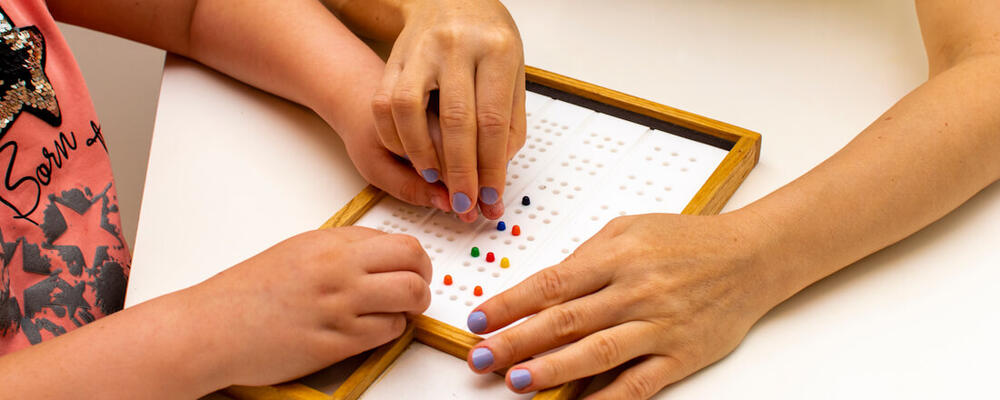
Inclusive education is fundamental in Norwegian primary and secondary education. All children and young people, regardless of ability, are entitled to the same level and standard of education.
Norway spends significant resources on providing special educational support and special-needs education. The aim of the Norwegian government is to improve adapted tuition in schools to improve learning outcomes for all pupils so that fewer of them require special-needs education. Of course, if there is a need to deviate from the normal curriculum, a decision on special-needs education is required.
Pupils may access special-needs provisions within ordinary study programmes, adapted or alternative study programmes in school or in workplace training.
Tutors in Norway
As in most Scandinavian countries, education is highly valued in Norway, and parents regularly use private tuition to bolster their children's learning. Expats also often employ tutors, whether for Norwegian language lessons, extra help with certain subjects or simply to build some confidence in an unfamiliar environment.
Tutoring can be massively beneficial regardless of age. Some top tutoring companies in Norway include Superprof and Varsity Tutors.
Moving to Norway
Living in Norway as an expat
Moving to Norway as an expat lands you in a Scandinavian country that conjures up images of Vikings, fjords, glaciers, and trolls with its dramatic scenery. In recent years, expats have flocked to the ‘Land of the Midnight Sun’ for its thriving economy, high standard of living, excellent welfare, and strong job market.
With limited arable land and a long coastline, Norway’s economy was traditionally based on fishing and shipping until oil was discovered off its shores in the late 1960s. Thanks to rich natural resources in the form of fisheries, hydroelectric power and petroleum production, Norway’s economy has thrived. The government’s savvy investments in its national oil fund have secured it one of the world’s biggest budget surpluses.
The country’s mix of economic success, social welfare systems and egalitarian policies keeps Norway at the top of the United Nations Development Programme’s Human Development Index. Norway is one of the world’s wealthiest countries, with a GDP per capita exceeding USD 100,000. Its capital, Oslo, stands among the planet’s priciest cities – worth keeping in mind when negotiating your salary package.
Norwegians take immense pride in their country and heritage. The Norwegian spirit shines the brightest on 17 May, the national holiday celebrating their 1814 constitution – one of the world’s oldest. The fanfare on this day outshines celebrations in many other countries.
Despite the steep cost of living, high taxation and chilly winters, Norway wins expats over with its stellar quality of life and work-life balance. The family-first lifestyle and egalitarian values make many call this Nordic gem home.
Oslo City Guide
Bergen City Guide
Stavanger City Guide
Working in Norway
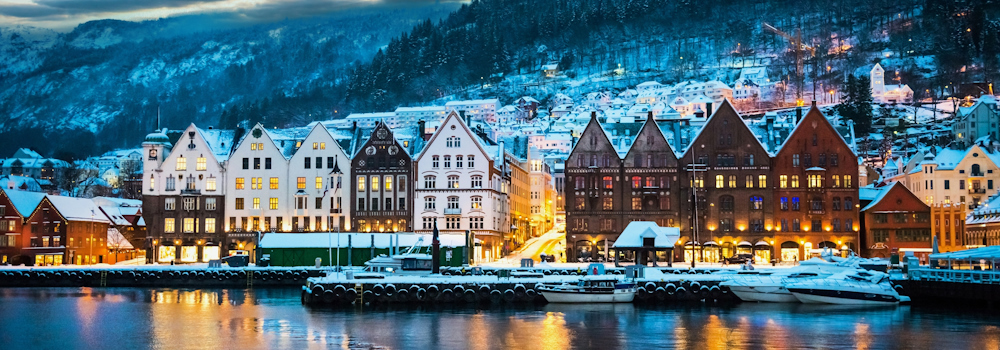
Working in Norway opens doors to plentiful opportunities, especially in the oil and gas sector, but also across the service industry that employs over three-quarters of the workforce. The country’s solid economy and abundant natural resources have driven one of the highest levels of GDP per capita worldwide.
Although not an EU member, Norway belongs to the European Economic Area (EEA) and the European Free Trade Association (EFTA). This grants the country access to trade within the EU internal market on equal terms with member states.
Since Brexit, UK citizens face new requirements when moving to Norway. You’ll need to apply for a residence permit for stays beyond 90 days, following the same immigration rules as non-EEA nationals. EU and EEA citizens still enjoy freedom of movement but with certain restrictions.
Visas, Work Permits and Residence Permits for Norway
Norwegian culture
Understanding Norwegian culture will form the backbone of your successful transition to the country. Locals value directness and honest communication, and they frown upon showing off wealth or achievements. This no-nonsense approach cuts through many aspects of daily life.
The work culture in Norway mirrors the broader social values – flat hierarchies and genuine equality reign supreme. While Norwegians work hard, you’ll enjoy shorter hours than in many countries, typically finishing around 4pm. Most companies embrace flexible working arrangements and true work-life balance, not just as a perk but as a fundamental right.
Local Culture in Norway
Business Culture in Norway
Accommodation in Norway
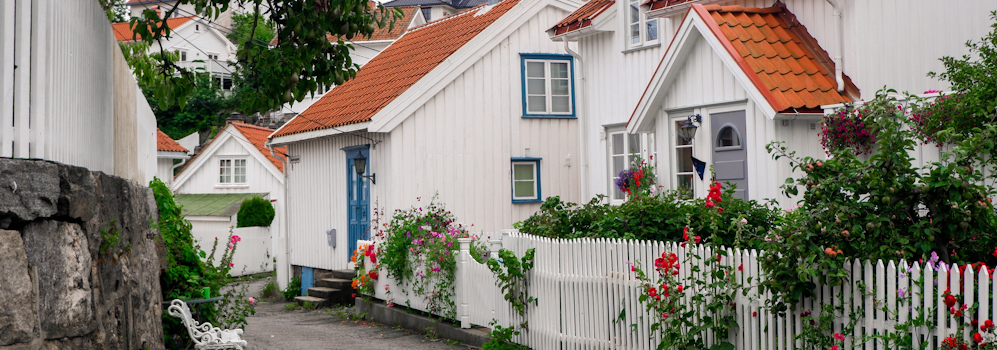
Accommodation in Norway comes with top-notch quality but eye-watering price tags. Housing prices jumped 6 percent in 2024, with experts predicting another 10 percent rise by 2025. Many employers sweeten the deal with a housing allowance as part of their employment package. Good properties get snapped up at lightning speed, so you’ll need to check property portals daily.
The housing market shows distinct regional differences, with Oslo and Stavanger seeing the strongest price growth. Count yourself lucky if your company provides a relocation specialist – they’ll do the legwork and present you with a shortlist for viewings.
Advice on Renting Accommodation in Norway
Best Places to Live in Bergen
Best Places to Live in Oslo
Best Places to Live in Stavanger
Cost of living in Norway
The cost of living in Norway may make your eyes water, but your salary should help ease the pain. While you’ll enjoy a stellar standard of living, saving money in Norway takes serious discipline. Unlike many countries, salary gaps between blue-collar workers and executives remain refreshingly narrow.
Housing costs will gobble up the lion’s share of your income, thanks to the ongoing supply shortage. Eating out puts a serious dent in your wallet, and transport doesn’t come cheap either. The tax system takes its pound of flesh too – expect to pay around 22 percent income tax at the basic rate, potentially climbing to 40 percent for higher earners. This progressive taxation leaves slim pickings for discretionary spending.
Living in Norway with children
Living in Norway with children offers you a family paradise, backed by the country’s commitment to egalitarian policies and its comprehensive welfare state. Every resident gets free or subsidised healthcare (although dental costs extra) and free education.
The parental leave system stands among the world’s most generous – 49 weeks at full pay or 59 weeks at 80 percent pay. The system divides into distinct quotas: 15 weeks for mothers (with the first six weeks taken immediately after birth), 15 weeks for fathers, and a shared 16-week period that parents can split as they choose.
Healthcare and Medical Insurance in Norway
Finding a school in Norway
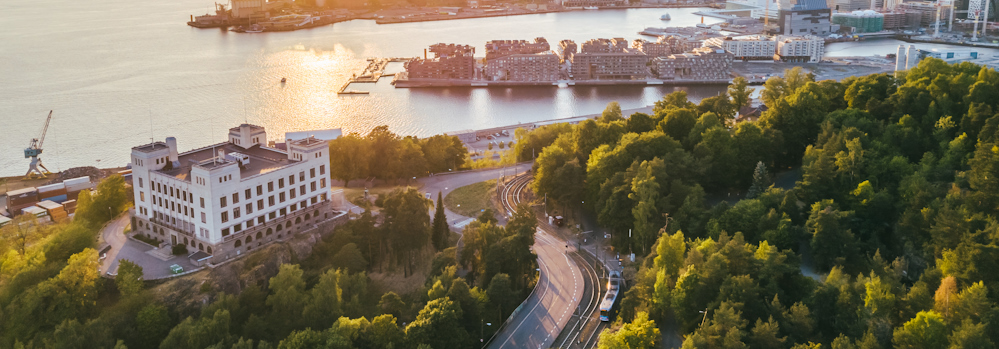
Finding a school in Norway gives you access to an education system that ranks among the world’s top performers. Public education shines with excellent standards, while higher education costs nothing for legal residents. Short-term stays? You’ll find plenty of private and international schools offering global curricula like the International Baccalaureate (IB).
The Norwegian approach emphasises critical thinking over rote learning, with a healthy mix of classroom and outdoor activities. Thanks to Norway’s abundant green spaces and jaw-dropping terrains, your children will enjoy countless outdoor adventures during free time.
Schools and Education for Expats in Norway
International Schools in Oslo
Education and Schools in Bergen
Education and Schools in Stavanger
Getting around in Norway
Getting around in Norway is easiest when using the country’s exceptional and varied public transport network. Metro, tram, bus, and train systems connect most urban areas seamlessly. Most cities remain compact enough to explore on foot, although you might want a car if you settle in the suburbs. Norway leads the world in electric vehicle adoption – a whopping 89 percent of new cars sold in 2024 were fully electric (up from 82 percent in 2023), hitting nearly 100 percent in early 2025. EVs now make up more than a quarter of all passenger vehicles on Norwegian roads.
Climate in Norway
The climate in Norway surprises many newcomers with its temperate conditions, especially along the coast. Southern Norway enjoys mild winters and warm summers with fairly stable weather patterns. Coastal regions benefit from the Gulf Stream, keeping winter temperatures between 30°F and 39°F (-1°C and 4°C).
The mountainous interior and northern regions tell a different story, with freezing winters and heavy snowfall. The north experiences dramatic seasonal shifts – sometimes all four seasons in a single day! Climate change has hit Norway hard, particularly in Arctic areas where shorter snow seasons, thawing permafrost, and shrinking sea ice affect the entire country’s weather systems.
Fast facts
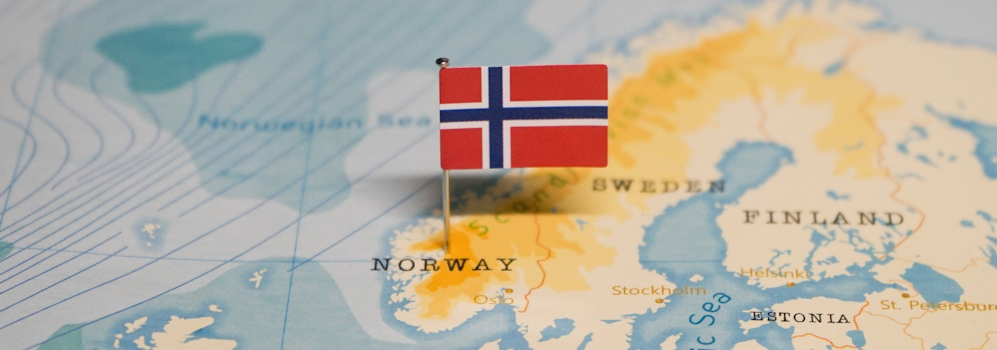
Official name: Kingdom of Norway
Population: Around 5.55 million
Capital city: Oslo (also the largest city)
Other cities: Bergen, Stavanger, Trondheim
Neighbouring countries: Norway shares borders with Sweden to the east, Russia and Finland to the northeast, and Denmark across the Skagerrak Strait.
Geography: Norway has a rugged coastline, broken by huge fjords and thousands of islands. Much of the country is dominated by mountainous or high terrain, with a great variety of natural features caused by prehistoric glaciers and varied topography. The most noticeable of these are the fjords: deep grooves cut into the land flooded by the sea following the end of the Ice Age.
Political system: Unitary parliamentary constitutional monarchy
Major religions: Christianity
Main language: Norwegian (official). English is widely understood.
Money: The Norwegian Krone (NOK) is divided into 100 øre. It is relatively easy for expats to open a bank account in Norway, provided they have a national ID number (personnummer).
Tipping: Service charges range from 10 to 15 percent in most hotels and restaurants. Taxi fares are generally rounded up to the nearest krone.
Time: GMT+1 (GMT+2 from the last Sunday in March to the last Sunday in October)
Electricity: 220V, 50Hz. Two-pin, round-prong plugs are used.
Internet domain: .no
International dialling code: +47
Emergency contacts: 112 (police), 113 (ambulance), 110 (fire)
Transport and driving: Cars drive on the right-hand side of the road. Public transport is efficient and easy to use, making getting around Norway very straightforward. Norway leads the world in electric vehicle adoption, with over 90 percent of new cars being electric.
A Brief History of Norway
Early history and the Viking Age
- 8th century: Norway has a rich history dating back to the Viking Age when numerous tribes inhabit the land. The Vikings are known for their seafaring and trading abilities, and they established settlements in many parts of Europe and beyond, including England, Scotland, Ireland, France, Russia, and Iceland.
- 793 AD: The first recorded Viking raid takes place in Lindisfarne, England.
- 872 AD: A collection of small kingdoms ruled by petty kings, Norway is unified under the rule of King Harald Fairhair. This event is considered the beginning of Norway's national history and the start of its development into a unified state.
- 1000 AD: Olaf Tryggvason becomes Norway's first Christian king, bringing Christianity to the country.
The Kalmar Union, Danish-Norwegian rule and cession to Sweden
- 1397: The Kalmar Union unites Denmark, Norway, and Sweden under a single monarch. The union aims to establish peace and cooperation between the three kingdoms, but it also subordinates Norway to Danish rule.
- 1397–1521: Sweden repeatedly leaves and rejoins the union, and eventually separates to become the Kingdom of Sweden.
- 1520s: The Protestant Reformation leads to the establishment of the Church of Norway as a separate entity from the Roman Catholic Church, further distinguishing Norway from Denmark.
- 1537: Denmark invades and annexes Norway, effectively subjugating it to Danish rule for the next three centuries.
- 1814: Norway is ceded to Sweden as part of the Treaty of Kiel. The Norwegian Constitution is signed, establishing Norway as a separate kingdom and granting greater political rights to citizens.
Independence and modernisation
- 1905: Norway's peaceful separation from Sweden is facilitated by the Norwegian government's negotiations with the Swedish king, leading to Norway's independence and the establishment of a constitutional monarchy, with the Danish Prince Carl elected as King Haakon VII.
- 1913: Norway introduces universal suffrage for women. Norwegian women begin to play a greater role in politics.
- 1940: Norway is invaded by German forces during World War II, leading to significant hardship and loss of life for Norwegians.
- 1945–1962: After the war, the Labour Party led by Einar Gerhardsen establishes a comprehensive welfare state that remains a hallmark of Norwegian society. The government's policies and the discovery of significant natural resources lead to rapid economic growth and modernisation.
- 1949: Norway joins the North Atlantic Treaty Organisation (NATO).
- 1969: The discovery of large oil reserves in the North Sea initiates the transformation of the Norwegian economy and solidifies its position as a major oil producer.
- 1972: Norway votes to join the European Economic Community (EEC), which later becomes the European Union (EU), but ultimately decides not to join after the rejection of membership in a referendum.
- 1990s: Norway becomes a leader in environmental initiatives and sustainable development, investing in renewable energy sources such as hydroelectric, wind and solar power.
- 1994: Norwegians reject membership of the European Union in a referendum for a second time, by a margin of about 5 percent.
Contemporary Norway
- 2000s: Norway experiences a period of prosperity and stability, but is hit hard by the global financial crisis of 2008.
- 2011: Norway suffers one of the worst terrorist attacks in its history, when a far-right extremist bombs government buildings in Oslo and carries out a mass shooting on the island of Utøya, killing 77 people.
- 2015: Norway is ranked as the most prosperous country in the world by the Legatum Prosperity Index, and it continues to lead in environmental and social policies.
- 2016: The Lutheran Church – to which three-quarters of Norwegians belong – adopts a new liturgy allowing gay couples to marry in church weddings.
- 2019: The Norwegian Government Pension Fund Global, also known as the Oil Fund, reaches a value of more than a trillion US dollars, making it the world's largest sovereign wealth fund.
- 2020: The Covid-19 pandemic reaches Norway, leading to widespread lockdowns, economic disruption and significant loss of life. The Norwegian government implements strict measures to contain the spread of the virus, including border closures and social distancing rules.
Weather in Norway
Expats may be surprised to find that Norway is not bitterly cold all year round. Despite its northerly location, the coastal climate in Norway is temperate, thanks to the warming effects of the Gulf Stream flowing along its coast. Summer occurs between late June and early September and brings pleasantly mild days with temperatures reaching 72°F (22°C), and sea temperatures of 64°F (18°C).
When winter arrives in December, so does extreme cold. During this time of year, much of Norway is covered in snow, with extremely low temperatures in the north and the low-lying inland regions of the south. Temperatures drop well below zero. In contrast, the coast enjoys milder winters, although gales and rain are still common. In spring, between May and mid-June, Norway is at its prettiest as flowers blossom and melting snow swells the waterfalls.
Weather in Bergen
Weather in Stavanger
Banking, Money and Taxes in Norway
Banking in Norway is fairly straightforward, although new arrivals will have questions about money matters and paying taxes. Given the country’s high level of technological advancement, most transactions take place online and with cards.
Expats moving to the country must get a national ID number, which makes it possible to open accounts and carry out transactions.
Money in Norway
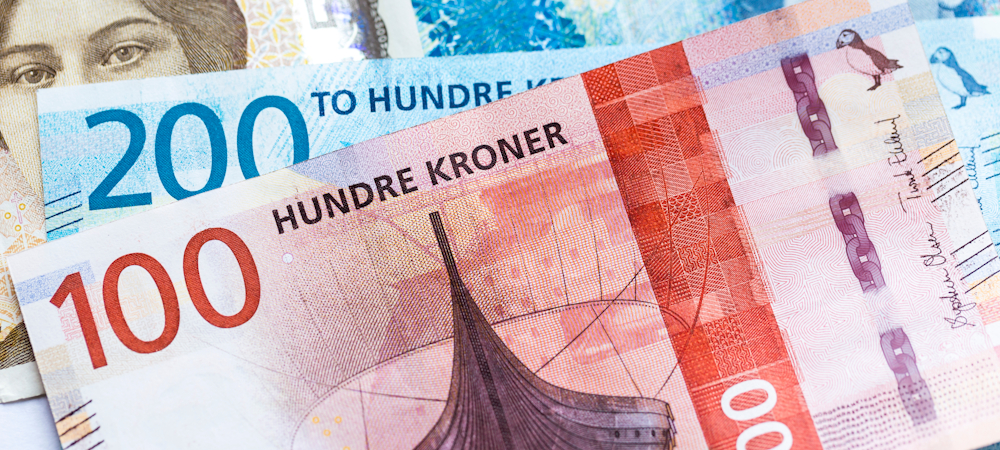
The official Norwegian currency is the Norwegian Krone (kroner in plural), or NOK, which is divided into 100 øre.
The Krone is available in the following denominations:
- Notes: NOK 50, NOK 100, NOK 200, NOK 500, and NOK 1,000
- Coins: NOK 1, NOK 5, NOK 10, and NOK 20
Banking in Norway
Norway hosts a handful of large commercial banks, while regional and savings banks are also available. Among the main banks are Bank Norwegian, DNB, and Handelsbanken.
Banking hours in Norway are generally 9am to 3pm. People often find that once they have their Norwegian bank card, they very rarely need to set foot inside a bank branch. Online banking is common and is used for just about any transaction. Mobile banking is also commonplace.
Opening a bank account
Expats need to open a local bank account if they plan to live and work in Norway. To do so, they need to get an 11-digit identity number. This national ID number, which every resident and citizen must have, is necessary to get paid, pay taxes, open a business and receive social benefits such as healthcare services, unemployment compensation and parental leave.
Norway's identity numbers are either a D number or a national identity number. Expats staying in Norway for less than six months but are liable to pay tax should obtain a D number, which can be provided by various organisations, such as banks and the Norwegian Labour and Welfare Administration (NAV).
Expats moving to Norway for more than six months will obtain a national identity number. The process of getting an identity number is usually done alongside visa and residence applications. Norwegian embassies abroad and the Norwegian Tax Administration provide further details.
It can take some time for the national ID number to come through, so expats should begin this process as soon as possible. Once obtained, opening a bank account is straightforward. Expats will need this identity number and their passport, and different banks may require additional documents such as an employment contract.
ATMs and credit cards
Most financial transactions in Norway are conducted with a debit card issued by a local bank. ATMs are easily accessible, but cash is becoming rare in this highly technological society.
Credit cards are accepted, and getting a credit card is easy for anyone with a local bank account, but Norwegians don’t use them often. Most Norwegians use their normal bank card instead. However, local and foreign credit cards are accepted almost everywhere.
Taxes in Norway
While taxes are high in Norway, expats can rest assured that this money goes towards public services, free (or subsidised) healthcare, education, pensions, and employee benefits.
All citizens and expats working in Norway are liable to pay taxes. Foreigners who have stayed less than 183 days over 12 months are considered non-residents, but must pay income tax on certain types of income earned in the country. Resident taxpayers – those who have been in the country for over 183 days – are taxed on their worldwide income.
Expats should also note that there are double taxation agreements with member states of the European Economic Area, Australia, Canada, the UK, and the US, among other countries. We recommend expats obtain more information from their local tax office (ligningskontor).
Norwegian employers deduct tax from employees before they are paid. Once a person has found employment in Norway, they are responsible for obtaining a tax card from the local tax office. An expat’s employer and local tax office can help with this process, providing all necessary information on how to apply and what must be enclosed with the application.
Declaring personal taxes is an organised, systematic and simple process. Once an expat is listed in the Norwegian system, they will receive a tax declaration or tax return with the tax authority’s details and estimates of their income, assets, and debt. As tax regulations are subject to change and these processes may seem complicated at first, we recommend the services of a tax consultant.
Transport and Driving in Norway
When using transport and driving in Norway, you'll have access to one of Europe’s most efficient and well-connected systems, with most of the country covered by trains, bus services and ferry lines. Getting around in Norway is straightforward and hassle-free, with regular services connecting major cities and smaller towns alike.
Norway’s investment in green transport makes public options particularly attractive, with excellent connectivity between different transport modes throughout the Norwegian network.
Getting Around in Oslo
Getting Around in Bergen
Getting Around in Stavanger
Public transport in Norway
Public transport in Norway ranks among the most punctual and reliable networks in Europe, particularly in major cities like Oslo, Bergen, and Trondheim. Each city runs its own transport system – Ruter in Oslo, Skyss in Bergen, and AtB in Trondheim – with dependable bus, tram, and train routes that take you wherever you need to go. Buses and trams typically depart every 5, 10 or 15 minutes during peak hours. Outside normal hours, they leave every 20 or 30 minutes within the city limits.
Long-distance trains and buses have schedules for each city, which you can easily find online using journey planners like Entur. Norway’s public transport can be pricey, but there are cost-effective options for long-term use, such as season tickets and discount programmes like Ruter’s ‘Reis’ in Oslo and Skyss’s Travel Discount in Bergen. Most transport systems now offer mobile apps for ticket purchases, making your journeys more convenient.
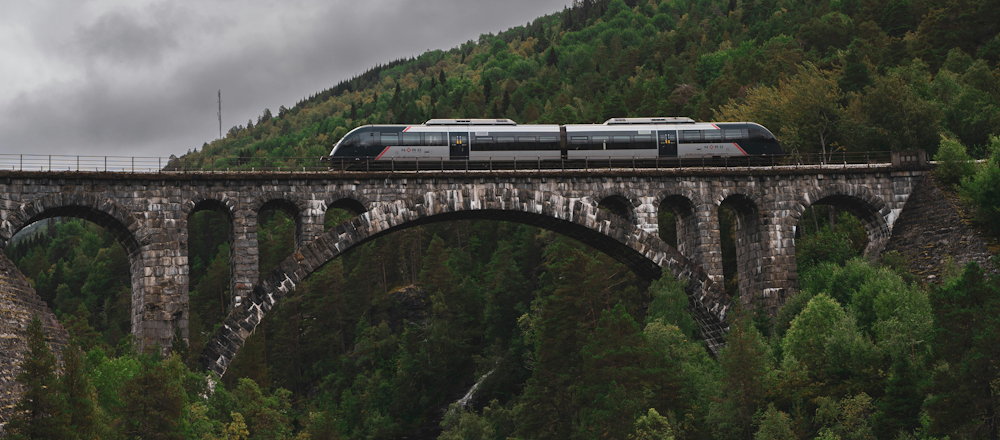
Trains
When travelling in Norway by train, you’ll find that the Oslo Central Station (Oslo Sentralstasjon) serves as the main hub for rail travel throughout the country. Vy (formerly NSB) remains the primary train operator offering domestic services, although other operators like SJ NORD and Go-Ahead now run some routes as well. International trains connect Oslo to Gothenburg, Stockholm (via Karlstad), northern Sweden and down to Malmö.
Buses
Oslo’s central station sits next to the main bus station, where all express and international buses depart and arrive. You can reach the city by bus from most of Europe. Norway’s respective counties manage their individual public bus services, while various private local and international companies run long-distance bus services. The bus network provides excellent coverage even to remote areas not served by trains.
Ferries
Since much of Norway hugs the coast, ferries often provide the fastest form of transport. The Hurtigruten ferry service follows the entire coastline from north to south and offers a scenic introduction to your new home country. From Oslo, regular ferries take passengers to Denmark, Sweden, and Germany. Although services vary seasonally, ferry lines also connect the south of Norway to the UK.
Useful links
Taxis in Norway
Taxis in Norway offer convenience at a premium price. You’ll spot official taxis at designated ranks in city centres, railway stations and airports, or you can order them by phone or mobile app. Major cities have several taxi companies, with Oslo Taxi leading in the capital. Ride-hailing service Bolt now operates in larger cities like Oslo, although traditional taxis still dominate the market. Unlike many other European capitals, Uber has very limited operations in Norway due to regulatory hurdles.
Most taxis accept payment by credit card, and while tipping isn’t expected, rounding up to the nearest 10 kroner is common practice. For safety and fair pricing, stick to official taxis that display their company logo and licence number. Many taxis now offer fixed-price options for airport routes, helping you manage costs for these common journeys.
Useful links
Driving in Norway
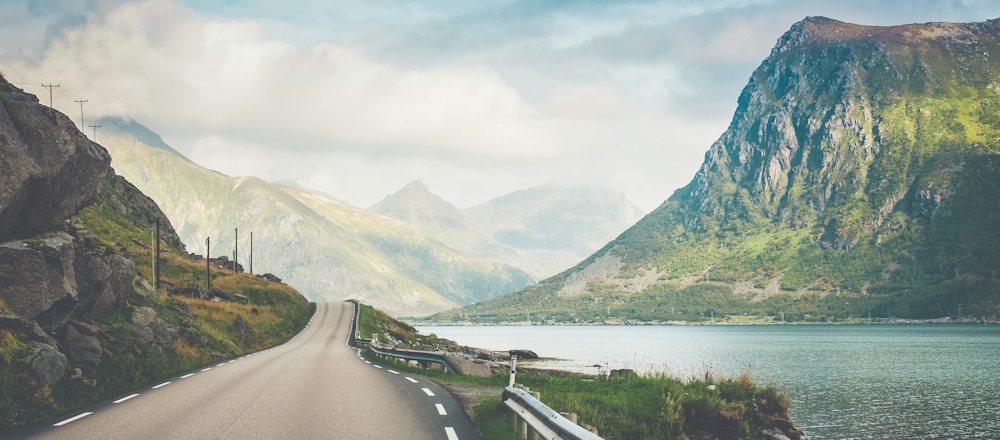
When driving in Norway, you’ll drive on the right-hand side of the road. While some expats buy cars, you’ll need to master driving in the country’s challenging winter conditions before taking to the roads. Norway’s vast network of electric vehicle charging stations makes it perfect for EV owners, reflecting the country’s push toward 100 percent zero-emission new vehicle sales.
Major roads in Norway shine in quality, but this changes once you leave the south. The sparsely populated areas and rugged, mountainous terrain mean that major roads are few and often only consist of two lanes. On weekends and holidays, these roads back up with traffic for hours, so plan for delays. The scenic tourist routes get particularly busy during the summer months.
Regulations on cars and driving don’t mess about. Fines are based on your salary; the more you earn, the harder your wallet gets hit for speeding. Norway has a zero-tolerance policy for drinking and driving, with steep fines and prison sentences for offenders.
The country uses a points system (prikkbelastning) to handle traffic offenders. Two points land on your record for most violations, except in minor speeding cases.
If you accumulate eight or more points during a three-year period, your driver's licence gets temporarily revoked, usually for six months. Each point disappears when three years have passed since the violation. After serving the six-month ban, your driving record gets wiped clean. Road authorities conduct regular checks for appropriate tyres during winter months, with a minimum tread depth of 3mm required for winter tyres (compared to 1.6mm for summer tyres).
Driver’s licences
Depending on where your driver's licence comes from, you can use your home country licence in Norway, but you may eventually need to exchange it for a Norwegian licence. When exchanging your foreign driver's licence, you must send it to the Norwegian Public Roads Administration with an application for exchange.
As of April 2024, there are updated regulations for exchanging non-European Economic Area (EEA) licences, with specific rules for countries like Australia, Canada, Israel, New Zealand, and the USA. You might need to take a driving test, which involves substantial fees. EEA residents can use their home country driver's licence as long as it remains valid, although if it was originally exchanged from a non-EEA country, different rules apply.
If you want to pursue a Norwegian licence, expect to invest significant time and money. Beyond basic skills, you’ll learn to drive on ice and handle snowy conditions. Winter driving courses form part of the mandatory training, with specific instruction on handling vehicles in slippery conditions – knowledge you’ll appreciate during Norway’s long winter season.
Useful links
Domestic flights in Norway
Domestic flights in Norway provide a critical transport option throughout this vast country, with Norway having more flights per capita than any other European country. The routes connecting Oslo to Trondheim, Bergen, and Stavanger rank among the 10 busiest in Europe. The main carriers are Scandinavian Airlines (SAS), Norwegian Air Shuttle, and Widerøe, which primarily serves regional routes to smaller airports.
Partnerships between airlines have improved in recent years, with Norwegian and Widerøe extending their interline agreement to allow passengers to connect to points on both airlines’ networks on a single ticket. Widerøe now operates from five bases in Norway – Bergen, Bodø, Oslo, Sandefjord and Tromsø – serving more than 50 destinations across the Nordic region.
Useful links
Healthcare in Norway
The healthcare system in Norway is one of the best in the world. There are both public and private facilities – public services are subsidised by the government and are either free or only cost a small fee, while private healthcare is funded by patient fees and is much more costly.
Public healthcare in Norway
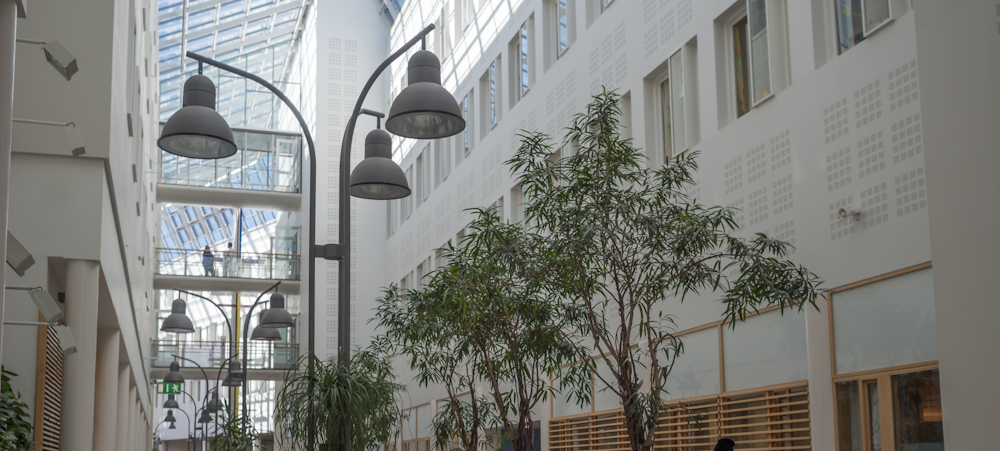
Every citizen and resident of Norway is entitled to healthcare. The quality of public healthcare in Norway is excellent. It is heavily subsidised by the government and supported by the Norwegian National Insurance Scheme (Folketrygden, NIS).
Patients will be expected to pay a fee after any visit, but once they reach a specific limit, they are entitled to an exemption card (frikort) and will not have to pay any more within that calendar year. Patients just have to show their exemption card when they visit any public medical facility.
Expats who are registered in the National Population Register (Folkeregister) will automatically be assigned a general practitioner (GP) within the public system. If you'd prefer a different GP, you can find another one for yourself, though you can only change doctors twice a year.
To see a specialist, you first need to visit your GP for a referral. In a non-emergency situation, it may take a few weeks to see a doctor, and up to several months to see a specialist. For this reason, some people prefer to go private to avoid long waiting times or to see specific specialists.
Useful links
Private healthcare in Norway
There are numerous private healthcare facilities in Norway, many of which cater to the medical tourism market. Norway has high-quality specialists and diagnostic facilities that are competitively priced by UK and US standards.
Increasingly, Norwegian residents are choosing to take out private health insurance in addition to the NIS. This is partly to avoid long wait times for GPs and other specialists, and also to have a medical backup in the event of an emergency or conflicting medical opinions. Without a doctor's referral, a patient cannot get an appointment with a specialist under the public system.
GPs who are not affiliated with government hospitals are usually private. They don't have the long waiting lists of public GPs and are therefore in increasing demand. In addition, most dentists are part of private practices, as dentistry is mostly not covered by the NIS.
Health insurance in Norway
Expats moving to Norway may opt for private health insurance to supplement the NIS and ensure access to services such as dentistry and mental health treatment. Private health insurance also reduces waiting times for specialist appointments and procedures, but this comes at a cost. Fortunately, some employers offer private healthcare as part of the employment package.
Expats should be aware that private health insurance in Norway does not cover acute cases or emergency hospitalisations, so registering with the NIS is still important.
Pharmacies and medicines in Norway
Prescription medicine falls into two categories, white and blue class, and is respectively either free or subsidised. Subsidised medicine only carries a nominal fee.
Pharmacies are ubiquitous, and there will always be at least one open in each district (schedules are available at any pharmacy). Norwegian pharmacies sell prescription medication, over-the-counter drugs, and cosmetics.
Vaccinations for Norway

No specific vaccinations are required for Norway. However, standard vaccinations should be kept up to date, including:
- Mumps, measles, rubella (MMR)
- Diphtheria, tetanus, pertussis
- Chickenpox
- Polio
Seasonal vaccinations for flu and Covid-19 are also recommended, though not required.
Emergency services in Norway
Emergency services and transport are free under the NIS. Response time is fast, and emergency care is typically excellent.
- Ambulance: 113
Working in Norway
Expats with a job lined up in Norway can count themselves lucky, as the country is consistently identified as one of the best countries in the world to work in.
The majority of Norwegians are said to feel satisfied and secure in their job, while most workers believe they could find another job if they wanted to. A strong, mixed economy and welfare state have created an environment of trust, confidence, and optimism within the labour force.
Norway’s work culture is generally supportive of employees and puts a strong emphasis on good work-life balance. A Norwegian boss may even be concerned that an employee is working too hard or too much.
Job market in Norway
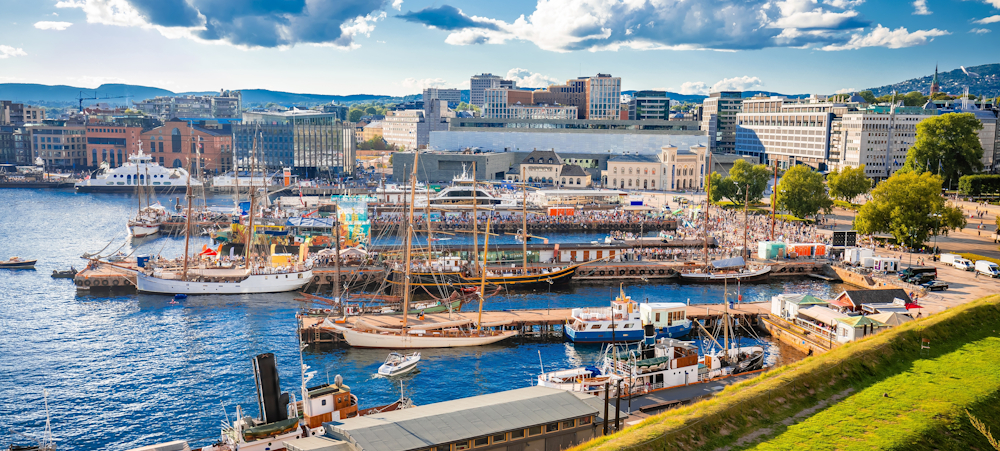
Norway has a mixed economy, meaning the government and private enterprises are significant employers. Some of the largest employers in Norway, include Norsk Hydro, Telenor, Orkla, Aker Solutions, and Equinor. Important industries in Norway are petroleum and natural gas, mining and shipbuilding, as well as fishing.
As such, Norway’s robust economy offers many opportunities for expats, particularly in these fields, as well as engineering, IT, research, finance, and education. Just as oil and gas is a major sector, Norway is also investing in clean energies, including hydroelectric power, and the development of green technologies is a growing field.
Norway's economy has remained relatively stable and has emerged strong from global financial crises. Average earnings are high across all professions, whether teachers, accountants, architects, or receptionists.
Finding a job in Norway

With an overall low unemployment rate, there are often many open positions in Norway. That said, the small market can make it difficult to find a job that perfectly fits an individual's background and profile.
Multinational firms are known to hire expats even if they don’t speak Norwegian. Otherwise, the general feeling is that expat employees should be able to speak the language and have some experience in the Norwegian market. Expats with specific qualifications should find out if these are recognised in the country and, if not, may need to undergo some vocational training after arriving.
The Norwegian Labour and Welfare Administration is one of the best places to start the job search, as it provides tips for jobseekers and guidance on how to find job vacancies. Alternatively, there are listings of jobs available online via portals such as FINN.no and Jobbnorge.no, while having a strong LinkedIn profile is also advised.
Useful links
Work culture in Norway

The work culture reflects Norwegian society at large in that it's egalitarian and there is no real hierarchy. Any employee can comment on a project, while top-down communication channels are not as specific as in other countries.
Doing business in Norway is rated as easy, and while employees work hard, typical working hours are shorter than in many other destinations. Employees also benefit from the wide scope of social benefits and great working conditions, which contribute to a happy work-life balance.
Work Permits for Norway
If you’re in need of a work permit for Norway, your country of origin will determine whether you need a residence permit for work before taking up employment. You should apply for this at the Norwegian embassy in your home country.
Several agencies can help streamline the process of securing your visa or work permit from within Norway itself.
Visas and Residence Permits in Norway
Work permits in Norway
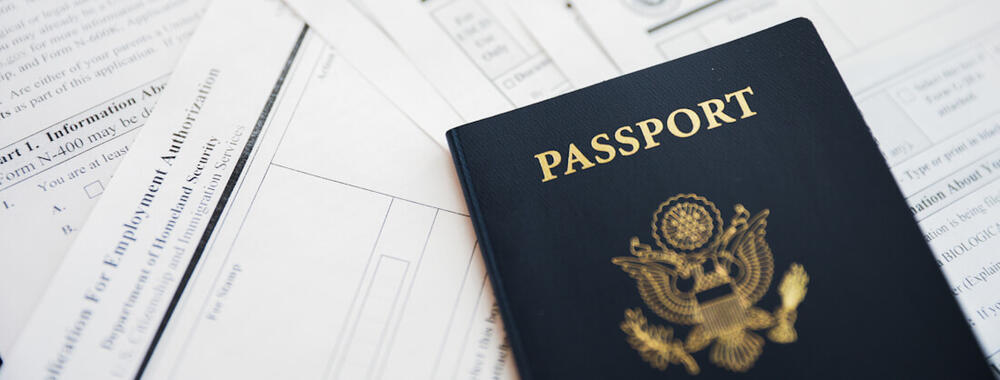
EU citizens looking for work permits in Norway have it relatively easy. With just a valid identity card or passport, you can legally move to Norway and hunt for jobs without a work permit for up to six months. You must register with the police within three months of arrival. If your job search proves unsuccessful after six months, you’ll need to leave, but can return later to restart the process.
Non-EU citizens seeking work permits in Norway, including UK nationals post-Brexit, will face different application processes depending on their intended work type. You must typically have a job offer before applying for a residence permit. Norway is updating its seasonal work visa programme with new rules taking effect in 2025, which will change eligibility requirements and job categories.
Skilled workers
Skilled workers in Norway need either completed vocational training or a university degree for their profession, with a qualification that corresponds to Norwegian standards. Only in rare cases are permits granted based solely on work experience.
For healthcare professionals and certain other fields, you’ll need approval from relevant state organisations like the Norwegian Registration Authority for Health Personnel (SAFH). As of 2024, Norway is working to improve its qualification recognition process for EEA health professionals by adding aptitude tests.
After a successful application, your permit remains valid for one to three years at a time. After three years, you can apply for permanent residence. Family members can typically join you through family reunification, which requires marriage/birth certificates and proof of financial stability.
You can switch jobs while working for Norwegian employers, provided you stick to similar work. You’ll need to apply for a new permit for significant job changes.
Useful links
- Registering in Norway – Work in Norway
- Police Registration for EEA Citizens
- Work Immigration to Norway
- Skilled Workers in Norway
Applying for a work permit in Norway
When applying for a work permit in Norway, EU or European Economic Area (EEA) citizens don’t need a work permit or residence permit for short stays. Following Brexit, UK citizens are now treated as non-EU citizens and need to apply for permits like other non-EU nationals.
You’ll find comprehensive information about work permits and regulations on the Norwegian Directorate of Immigration (UDI) website. The Norwegian Labour and Welfare Administration (NAV) also provides country-specific permit details and is an excellent resource during your job hunt.
Finding a Job and Working in Norway
Useful links
Visa and work permit regulations may change at short notice, and you should contact your nearest Norwegian consulate or the Norwegian Directorate of Immigration for the latest information.
Local culture in Norway
Expats may initially struggle to adjust to the local culture in Norway. From the icy weather and dark winter months to the shockingly high prices in supermarkets, it can take some time to settle into a new normal here.
Foreigners frequently report that Norwegians are difficult to get to know. While Norwegians can be wary of strangers, they will slowly open up once they are familiar with someone. Once you manage to break through the frosty exterior and make a Norwegian friend, you'll often find that you have a friend for life.
Cultural differences in Norway
Much of Norwegian life can be understood by a social value called Janteloven, similar to conformity and equality between all people. As a result, it is still considered inappropriate for people to flaunt their wealth, achievements or career status.
Norwegians are known for being reserved, honest, humble and straightforward people. They don’t like hierarchy, so an expat’s boss will be more likely to ask for their opinion than give them orders.
Expats may also discover that Norwegians are not outwardly social and are unlikely to greet in shops, in the street or even in social settings until they know someone. Extroverted expats should use their skills to get to know people. Work is a good place to socialise and meet others, but new arrivals should not be surprised if they are the only ones who want to socialise after work. Norwegians put a high priority on spending time with their families and are likely to go home straight after work.
Language barrier in Norway
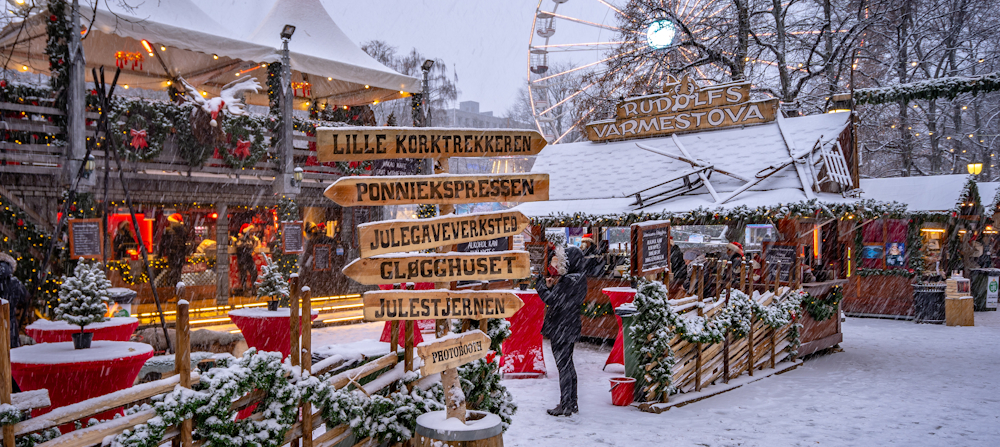
Norway has two official languages: Norsk and Sami (spoken by the indigenous Sami of the north). English speakers have an advantage, since most Norwegians speak some English and anyone born after 1960 is probably quite proficient, if not fluent. English may be widely spoken in the cities, but it's less so in the rural areas and towns.
Expats won’t necessarily need to learn Norwegian (unless they want to become a citizen), but it will certainly be useful in adapting to life in Norway and is a good way to integrate into the local community.
Office culture in Norway
Foreigners may find Norwegian working hours surprisingly lax and flexible, and very family- and sun-friendly. Norwegians work hard and are effective during work hours, and Norwegian companies expect employees to work between 8am and 4pm. On the rare warm and sunny days of the year, some companies close up shop at 3pm to allow their employees time to be with their families, play sports and be outdoors.
Employees with children can usually leave by 3.30pm or 4pm to pick them up from daycare without the need for an excuse or explanation. If your children are sick, it's also often possible to stay home for a few days to take care of them. These general rules apply to the public sector and most private sector companies, but not all of them. Also, certain jobs do not allow for this kind of work balance, such as consultancy and senior management positions.
Climate in Norway
One major challenge for expats moving to Norway from warmer climates is coping with the cold weather and long, dark winters. Between 6.5 and 19 percent of the population suffers from some form of Seasonal Affective Disorder (SAD), a form of depression that occurs during the winter months and is related to lack of sunlight.
Most foreigners find the winter months tiring at best and unbearable at worst. Some tips for handling the winter include:
Wearing properly warm clothing
Getting a sunlamp at home and in the office
Taking a mid-winter trip to a warmer climate
Partaking in winter sports such as skiing
Weather in Norway
Got Light? The Importance of Sunlight in the Nordics
Surviving Winter in the Nordics as an Expat
Food in Norway
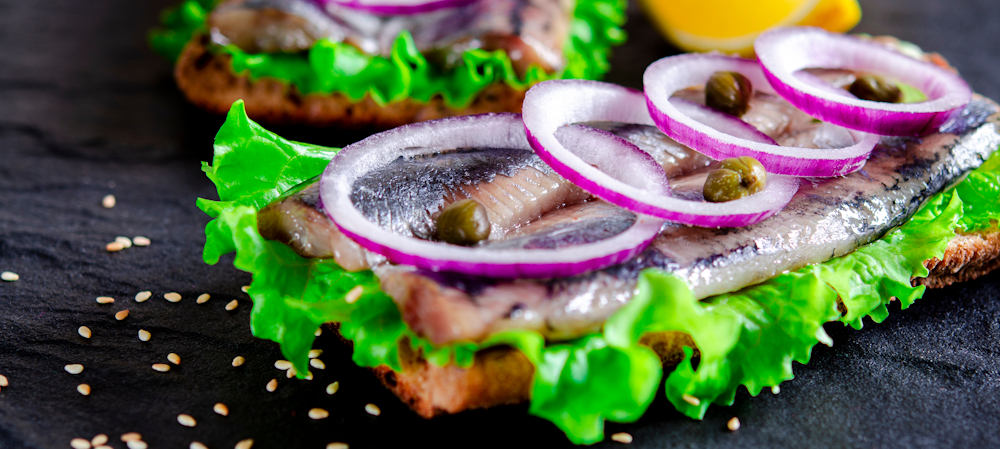
Depending on your taste in food, you may find Norwegian cuisine takes some getting used to. Staple foods are fish and rice or potatoes. Lunch is usually eaten during a half-hour break, and consists of cold spreads of fish, meat, eggs, and vegetables on slices of bread, often accompanied by a glass of milk. There is more variety than this in most cafeterias and restaurants, but don’t be surprised to find colleagues eating these open-faced sandwiches (smørrebrød) every day.
Norwegian delicacies include pinnekjøtt (dried meat eaten at Christmas), lutefisk (dried whitefish prepared with lye), rakfisk (salted, fermented fish), risgrøt or riskrem (rice porridge), ribbe (fatty pork eaten around Christmas) and smalahove (sheep’s head).
Religion in Norway
Though Norway’s government is officially linked to the Church of Norway (a Lutheran church), the country is highly secular. Religion and personal faith are not common topics of discussion. There are many churches and a few temples and mosques, but controversy remains over some religious faiths and practices, such as wearing the hijab.
LGBTQ+ in Norway
Norway's culture is accepting of LGBTQ+ individuals, and in 2006 the country became the first Nordic state (and sixth country worldwide) to legalise same-sex marriage. Conversion therapy has been banned since 2023, and discrimination based on gender identity or sexual orientation is illegal.
Anyone can change their legal gender, and no surgery is necessary to do so. It's worth noting, though, that there is no legal recognition of non-binary gender, with the only available options being male or female.
LGBTQ+ culture is openly celebrated in Norway, with Oslo Pride being a major event that draws attendees from near and far.
Women in Norway
Norway is a world leader in gender equality, and expat women in Norway can rest assured that they will be treated with fairness and respect.
While truly equal representation in politics and leadership is a way off, the country has made major strides. Around 45 percent of parliament is female. Numerous high-ranking roles in the Norwegian government have been held by women, including the role of Prime Minister, which female candidates have twice held.
Despite laws that mandate equal pay for men and women, a gender pay gap of around 12 percent still exists in Norway. The government sees this as a priority and continues to work to improve the situation.
Shipping and Removals in Norway
Shipping and removals in Norway are straightforward, thanks to the country’s position as the eighth-largest shipping country in the world. Getting your belongings to Norway is straightforward, but costs can run high both into and out of Norway, as postage exceeds that of most other countries. Beware of customs regulations. If you reside in the country, you will pay tax on items shipped to Norway unless they are used items, certain gifts, or printed material.
Typical travel items like clothes, cameras, and personal goods pass through customs duty-free without declaration, provided the total value stays under the specified amount for your trip duration. Food and alcohol face strict limits, and exceeding these limits brings import tax and possibly large fines if discovered.
When moving to or from Norway, you should either hire a moving firm familiar with local regulations or do some research to learn what officials expect.
Relocation Companies in Norway
Shipping household goods to Norway
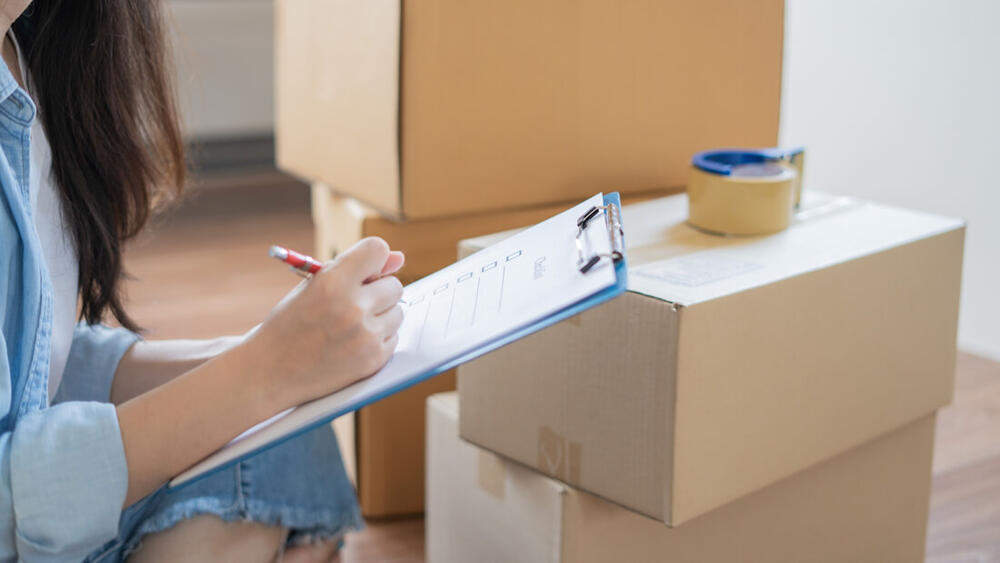
If you’re shipping your household goods to Norway, you need proper documentation and knowledge of the customs procedures. To import household goods duty-free, you need to fill out and sign the RD-0030E customs declaration form for Norwegian Customs.
To qualify for duty and tax exemption, your shipment must arrive within one year of your move to Norway. The goods must serve personal use, and you must have owned them for at least 12 months before importing. New items don’t qualify for exemption and will incur duties and taxes.
Some items require special permits or follow specific import rules, including vehicles, recreational boats, and work equipment. Motor vehicles don’t count as household goods and require registration with Norwegian number plates plus annual road tax payment.
Food products cannot travel as part of household goods shipments, with specific limited exceptions listed on the Norwegian Food Safety Authority website. Weapons require permission from the Norwegian Police; without it, they may be confiscated.
To avoid delays and extra charges, ensure all your paperwork is complete and accurate before your shipment arrives. Contact Norwegian Customs when your household goods reach Norway to speed up the clearance process.
Useful links
Shipping pets to Norway
Shipping pets to Norway requires planning and following specific regulations. All dogs, cats, and ferrets need identification via microchip (ISO standard 11784 or 11785). For animals registered after 3 July 2011, only microchipping works as a valid ID.
Pets shipped to Norway require rabies vaccinations, given when the animal is at least 12 weeks old. The vaccination must remain valid at entry time and be administered at least 21 days before arrival. Pets from Sweden get an exception and don’t need rabies vaccinations.
Dogs entering Norway need treatment for fox dwarf tapeworm (Echinococcus multilocularis) by a vet between 24 and 120 hours before arrival. This treatment must appear in the pet passport or health certificate.
All pets entering Norway from outside the EU/EEA require an EU Pet Passport or a vet health certificate. The proper authority in your home country must endorse this documentation. For pets from ‘unlisted countries’ (outside the EU and not on the EU’s approved list), extra requirements apply, including a rabies antibody test performed at least 30 days after vaccination and at least three months before travel.
Norway bans certain dog breeds from import. These include Pit Bull Terrier, American Staffordshire Terrier, Fila Brasileiro, Tosa Inu, Dogo Argentino, Czechoslovakian Wolfdog, and mixes of these breeds.
No quarantine applies to pets that meet all entry conditions. Pets failing to comply with import rules may return to their origin country, enter quarantine, or, in the severest cases, face euthanasia.
Useful links
Renting accommodation in Norway
Expats looking to rent accommodation in Norway will be happy to know that there are various housing options throughout the country, and generally of excellent quality across the board. Although rental prices in Norway can be high, some employers provide expats with a housing allowance in their employment contracts. Moreover, expats thinking of moving to Norway with their families can rest assured that – as with all other aspects of Norwegian society – the range of rental accommodation options available to them will be strikingly family-friendly.
The standard of housing in Norway is high, though expats relocating from countries where apartments and houses are typically roomy might be surprised at the relative lack of space in Norwegian homes. Nevertheless, expats can expect comfortable, well-finished, well-insulated rental accommodation with good heating systems.
Types of accommodation to rent in Norway
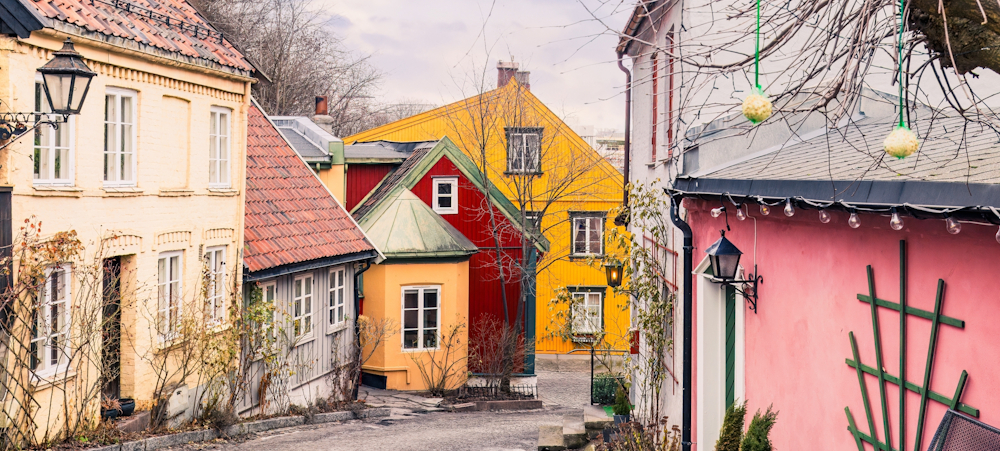
At least during the initial stages of their time in Norway, most expats opt for renting property in Norway. There is a variety of accommodation options to choose from, ranging from detached houses (enebolig) and terraced/row houses (rekkehus) to apartments and properties called 'tomannsbolig', which are large houses that have been subdivided for use by two families.
Many of those intending to rent accommodation in Oslo will end up in a flat (apartment), as property prices in the Norwegian capital are high. For those on a tight budget, it is also possible to rent a private bedroom in a shared house (bofelleskap), where the kitchen and other communal areas of the property are shared with other residents.
Furnished vs unfurnished
Most rental properties in Norway are unfurnished, but even unfurnished properties are likely to have curtains and fully fitted kitchens, along with an oven, fridge, dishwasher, and washing machine. Furnished apartments and houses include everything from furniture to cutlery and crockery in the kitchen. Due to the short-term nature of some expat assignments, many expats opt to live in fully furnished accommodation. For those who choose to rent unfurnished accommodation, it is possible to ship furniture to Norway; otherwise, a good range of furniture stores (including IKEA) can easily be found.
Short-term rentals
Many foreigners arriving in Norway opt to rent temporary accommodation while they settle in. This gives them the opportunity to research the best areas and suburbs to live in before making a long-term commitment. Serviced apartments and temporary accommodation are more expensive than long-term rentals but cheaper than hotels. They also come fully equipped, with all utility bills included in the rental price.
Useful links
Finding accommodation in Norway
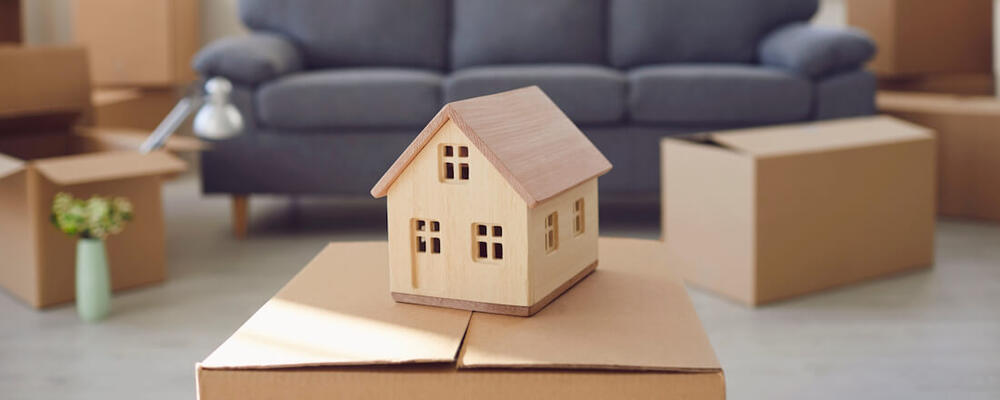
The process of renting a property in Norway is straightforward – although it's best not to pin your hopes on one specific property, as competition can be quite stiff, particularly in Oslo and other major cities. Expats often elect to have an agency do most of this legwork for them once they've decided on their budget and housing specifications.
Most people begin their search for a rental property via online property portals such as Finn.no and Hybel.no. Properties can also be found through word of mouth by asking friends and colleagues, especially if you're interested in renting a hybel (studio apartment) or kollektiv (a room in a shared house). Expat groups on social media are another good word-of-mouth source for finding upcoming property vacancies.
Useful links
Renting accommodation in Norway
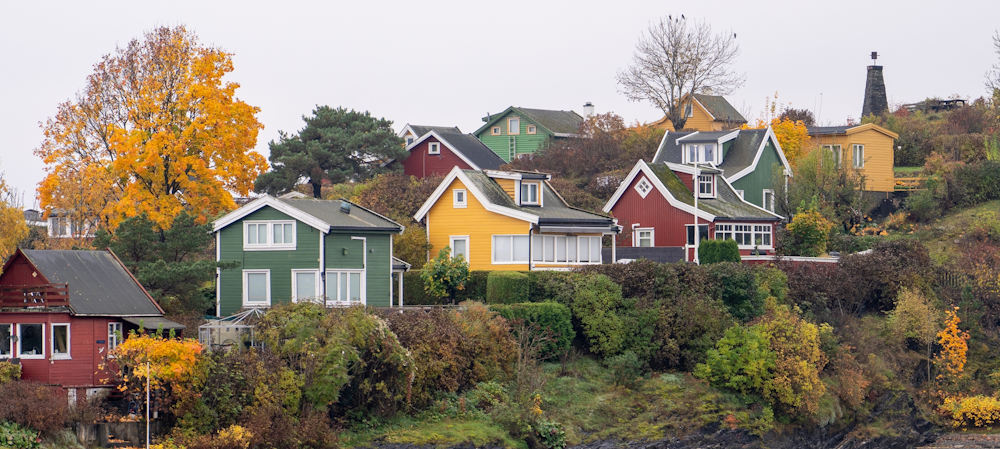
Making an application
As a potential tenant, you'll likely need to provide a personal reference from a previous landlord, an employer, or a guarantor. Expats who have recently moved to Norway usually have their employer act as a guarantor.
Leases and rental agreements
Most lease agreements in Norway are signed on at least a one-year basis, and sometimes up to two or three years. The contract should include information such as the monthly rental price, deposit conditions and whether utilities will be included in the rental costs. There should be a standard contract that protects both the tenant and landlord.
Deposits
You'll be required to pay up to three months' rent as a deposit before moving in. The deposit is held in a protected bank account and is refundable at the end of the lease, provided the property is not damaged beyond normal wear and tear.
Termination of the lease
It is important to note that a tenant can terminate a lease at any time without any reason. Typically, three months’ notice must be given in writing if intending to move out before the end of the lease.
Utilities in Norway
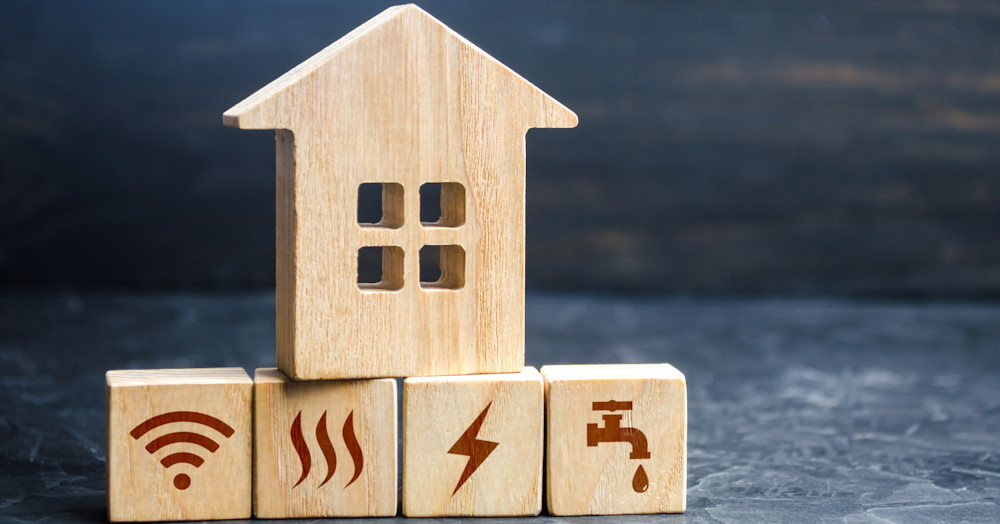
Utilities such as water and electricity are rarely included in the monthly rental cost in Norway, except in short-term accommodation. The lease will make clear whether utilities are included or not, and expats should ask about this up front to help them budget accurately.
Most rentals will already have gas, electricity, and water connected, and usually telephone and internet too, but expats will need to transfer the accounts to their name. Payment can be set up to be taken automatically from a bank.
Gas and electricity
Electricity is the main heating source for most Norwegian homes, and very few households use gas for heating or cooking. Most tenants will need to pay a monthly bill for gas and electricity – after a cold winter, the amount may come as a shock.
There is an open electricity market in Norway, which means that the customer is free to choose their energy supplier. Customers can select either a fixed-price contract, where the price per kilowatt-hour (kWh) is agreed in advance, or a market-price contract, where the spot price is paid. Most households have smart electricity meters which automatically send readings to the electricity provider.
Water
The quality of tap water in Norway is good by global standards, and it is perfectly safe to drink. Like electricity, the water will already be set up upon moving in, and the tenant will just need to transfer the account into their name. There are different water companies in different regions, and bills are worked out based on consumption.
Telephone and internet
There is good fixed-line and mobile internet throughout Norway, and expats can pick from a plethora of suppliers. Many expats in Norway won't bother with a fixed telephone line, and instead just install a broadband connection for the internet. Well-known suppliers include Telnor and Telia.
Bins and recycling
In Norway, waste bins are several different colours. Different municipalities have bins for different types of rubbish. For specific information, expats should refer to their municipality’s website.
Residents will need to separate their waste into different coloured bags and place these bags into the demarcated bins provided by the city. The second bin is labelled 'papir' (paper) and is for cardboard and paper. The bins will be emptied by the Agency for Waste Management. Any waste that doesn’t fit into these categories or is too big for the bags or bins should be delivered to a recycling station.
Useful links
Doing Business in Norway
Norway is an egalitarian society with flat hierarchies and power structures that do not keep management and employees estranged. Norwegians often work across hierarchies rather than down through the line. The leadership style is informal and is based on employee freedom with responsibility.
Despite some initial cultural differences, expats should find Norway an easy country in which to do business. Expats employed in Norway typically work in one of the country's key economic industries, such as oil and gas, fish farming, industrial fishing, mineral processing, hydroelectric power, shipping, or shipbuilding. Across all sectors, it's helpful to be familiar with the dos and don'ts in the Norwegian workplace.
Fast facts
Business hours
Monday to Friday, from 8am to 4pm, with a half-hour lunch break.
Business language
Norwegian, but English is spoken throughout with a high degree of fluency.
Dress
Business dress is determined largely by industry. The banking, finance and sales sectors are more formal and often require a suit, while creative or tech companies may have a more casual dress code.
Gifts
Many companies have a policy restricting their employees from receiving gifts. If an expat wants to give a business connection a gift, it is better to invite them out for lunch or dinner instead.
Greeting
Most Norwegians use first names in a business setting after the first introduction. Males and females shake hands as equals, but can also greet without shaking hands daily.
Gender equality
Norway is a fully equal society; women doing business in Norway will receive the same treatment as men.
Business culture in Norway

Business culture in Norway tends to be relaxed and informal, and quite unstructured. Coffee breaks are regular and socialising and having fun at work are encouraged, as it is believed that cheerful employees will be more productive. Norwegians have a strong balance between work and leisure, and most people leave the office at 4pm.
Egalitarianism
The key to successfully doing business in Norway is understanding the concept of egalitarianism – a belief in the inherent equality of people. Everybody feels like they can interact directly with everybody else in this Scandinavian country.
In line with this principle, Norwegians tend to establish direct contact with the person who can get things moving, rather than doing everything through the line. Egalitarianism also means that excessive displays of wealth are likely to be considered inappropriate and in bad taste.
Decision-making
The hierarchy is often quite flat, and decision-making models are based on consensus and compromise. Decisions may take a long time as many people's opinions have to be accounted for. Expats are expected to participate in the discussions and need to bear in mind that decision-making may be a slow process in Norway.
Norwegians are generally not afraid to voice their opinions and disagree with their boss. This is another likely consequence of the country's egalitarian society, strong job protection laws and extensive social welfare system.
Management style
The Norwegian management style is based on freedom with responsibility; a leader is more likely to delegate tasks to be solved than to give detailed orders. The leader does not micromanage and will usually give the subordinate freedom to figure out how and when to solve the task as long as it is completed within the deadline. Norwegian employees are accustomed to this management style, but they also understand that it demands an inherent sense of responsibility and accountability.
Meetings
Meetings in Norway will start on time and will frequently address points of business quickly, with only a few minutes of cursory small talk beforehand, which is typically done before everybody is in place. They are typically conducted informally and often without any note-taking or minute-keeping.
Dos and don’ts of business in Norway
- Do be on time for meetings and private appointments; punctuality is critical
- Do advise of any unavoidable delays
- Do get down to business after only a few minutes of small talk
- Do be honest and forthright
- Do dress smartly when going out in the evening for planned events
- Don't say yes if asked to do something that cannot be delivered on
- Don't stand too close; personal space should be respected
Visas for Norway
Norway is part of the borderless Schengen area, which means that if you’re a citizen of the European Union (EU), the European Free Trade Association (EFTA) or some other countries, you won’t require a visa to enter Norway for short stays. Norway is not an EU member state, but participates in the Schengen Agreement, allowing for border-free travel within the area.
If you don’t require a formal visa to enter Norway, you could be questioned at the border about the purpose of your visit and where you’re staying – this is routine and isn’t meant to antagonise anyone. Answer the questions simply and honestly, and you’ll get through fine.
Various residence and work permits are available, depending on your skill set and circumstances. All European Economic Area (EEA) citizens who move to Norway to work and live for longer than three months must register with the Norwegian police. Registration is free and only needs to be done once. If you’re an EEA citizen and continue to stay in the country, you’ll be granted permanent residence status after five years.
If you’re an EEA citizen planning to work in Norway, you’ll need to bring your passport or national ID card, employment contract, and passport-sized photos for the registration process.
Short-term visas for Norway
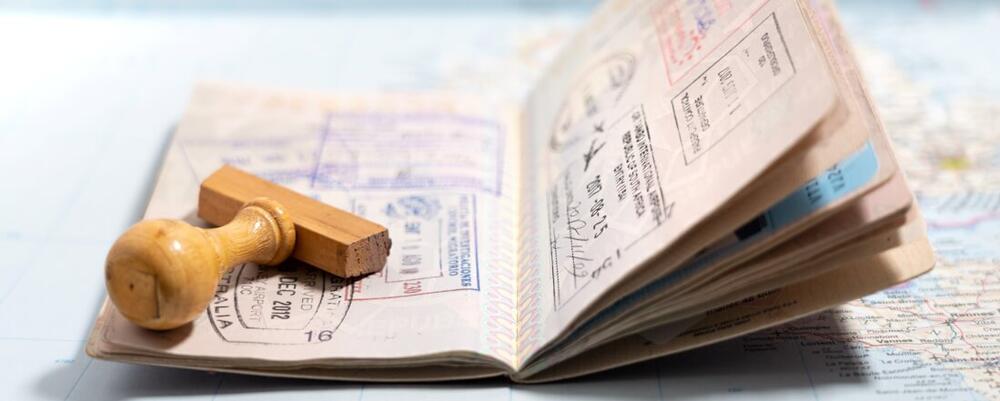
Short-term visas for Norway allow you to visit the country without extensive paperwork if you’re from certain countries. If you’re a citizen of the EU, the EFTA, or from countries on the Norwegian government’s designated list, you don’t need a visa to enter the country. You are entitled to a 90-day stay within any 180-day period in the Schengen area. You need a passport valid for at least three months beyond your planned departure date.
The list of countries that don’t need a visa for Norway includes the USA, Canada, Australia, New Zealand, Japan, South Korea, Singapore, and all EU/EEA countries. If you’re from a country not on the list, such as China, India, South Africa, or Thailand, you’ll need to apply for a Schengen visa to enter the country. You can apply at a Norwegian embassy or, in some countries, at a Swedish or Danish embassy.
Useful links
- Norwegian Directorate of Immigration (UDI)
- Norway Visitor’s Visa Application Process
- Visa-Free Countries For Norway
Schengen visas for Norway
Schengen visas for Norway require careful preparation if you’re from a country that requires one. When applying, you’ll need to have all required documents, complete application forms, and make an appointment to submit your application to the Norwegian consulate or embassy in your home country. The processing time typically takes between 15 and 21 business days, so submit your application at least 20 days before travel – but not earlier than six months before your planned trip.
If you’re applying for a Schengen visa to travel to Norway for business purposes, you’re required to include a letter of invitation from the Norwegian business party and one from your employer stating your duties in Norway. If you’re a conference delegate, you’re required to produce proof of registration and accommodation.
In some cases, the Norwegian embassy or consulate may ask you to provide additional documents. The standard requirements include a completed application form, a passport valid for at least three months beyond your stay, passport photos, travel insurance, proof of accommodation, proof of financial means, and a detailed itinerary.
Bring supporting documents like proof of accommodation, even after receiving your Schengen visa – immigration officials might ask to see them at border control points.
Useful links
Residence permits for Norway
Residence permits for Norway are mandatory if you’re not an EU or EFTA citizen and are interested in moving to Norway to work. You cannot move to Norway without being issued a residence permit, which can only happen with a concrete offer of a job from a Norwegian employer. Your employer can apply on your behalf for a residence permit, which streamlines the process.
To apply, you need to submit documents through the UDI online portal, pay the fee, and visit a Norwegian embassy or VFS Global centre for fingerprints and photos. Wait times differ based on your passport and permit type.
Skilled workers with a job offer may also apply for an entry visa to enter Norway before their residence permit is fully processed, allowing them to start work sooner. Once in Norway with your residence permit, you’ll need to register with the local tax office and apply for a Norwegian ID number.
Read more about Work Permits for Norway.
Useful links
Visa requirements can change at short notice, and you’re advised to contact your nearest Norwegian consulate for the latest information.
Pros and Cons of Moving to Norway
Exploring the pros and cons of living in Norway reveals why this Scandinavian gem remains irresistible to expats worldwide. Even the rainy weather can’t dampen the high quality of life you’ll experience here. The 2024 World Happiness Report ranks Norway 7th globally, confirming what many expats discover – life in Norway offers a remarkable balance despite a few challenges.
We’ve listed a few pros and cons of moving to Norway below.
Accommodation in Norway
+ PRO: Quality housing
Norwegians take a lot of pride in their homes, and the market is full of well-maintained houses and apartments that make for a high standard of living. Many homes are bright and have all the modern-day conveniences you could wish for.
- CON: High real estate prices
Accommodation in Norway hits your wallet hard. Renting and buying property is extremely pricey, gobbling up a massive chunk of your budget if you don’t have company support.
+ PRO: Furnished accommodation is available
Many rental properties come furnished with modern and clean furniture, and they often look like they’re right off the pages of an IKEA catalogue. Landlords are usually willing to replace furniture you aren’t happy with, and should you need to buy your own, there are plenty of options.
Renting Accommodation in Norway
Lifestyle in Norway
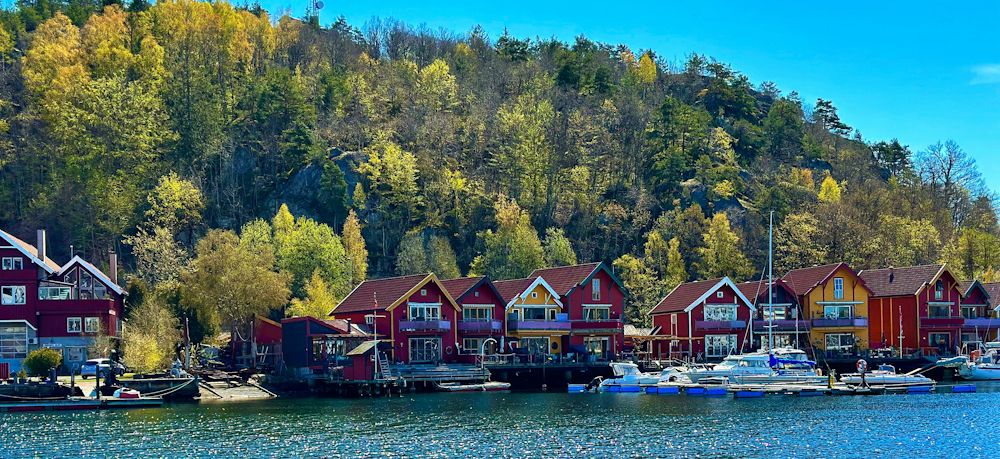
+ PRO: Plenty of outdoor activities
If you enjoy the outdoors, Norway is most definitely the place to be. Hiking, camping and fishing are all part of the Norwegian lifestyle, and the opportunities are endless. Walking and cycling paths are abundant throughout Norway, allowing you to maintain an active lifestyle. Sports teams and gyms are easy to find.
- CON: The weather is hard to bear
Rain and wind often go hand in hand in coastal Norway, and the winter temperatures in the interior and northern parts of the country are enough to give even the hardiest arrivals the shivers.
+ PRO: Clean environment
The lifestyle in Norway includes living in some of the cleanest cities you’ll ever see. Norwegians take serious pride in keeping their surroundings pristine. Recycling isn’t just encouraged – it’s woven into daily life. The country earned the world’s number two spot for green policies in 2024, and they’re dead set on cutting carbon emissions by 55 percent before 2030.
+ PRO: Norway is picturesque
Norway’s jaw-dropping natural landscapes leave visitors speechless. From fjords cutting into dramatic coastlines to snow-capped mountain peaks, the scenery alone is worth braving the weather for. You’ll find yourself constantly reaching for your camera.
Eating out in Norway
+ PRO: Good selection and quality
While there isn’t the massive amount of cuisines and diversity of eateries you may be used to in North America, for instance, it’s generally possible to find just about everything you might want or need. Norwegian restaurants pride themselves on using high-quality, locally sourced ingredients, making dining out a genuinely enjoyable experience.
- CON: Dining out is expensive
Save restaurant outings for special occasions – your wallet will thank you. A dinner for two can break the bank thanks to pricey ingredients, high wages, steep rents, and Norway’s hefty 25 percent VAT on food and drinks.
+ PRO: Growing food culture
Norway’s food scene is evolving, with food halls like Oslo’s Mathallen offering diverse culinary experiences in one location. Major cities increasingly feature international cuisines alongside traditional Norwegian fare.
Safety in Norway
+ PRO: Security is not an issue
Norway is a very safe country with a consistently low crime rate. Kids walk themselves to and from school, and people often leave their doors unlocked. While it’s always good to take standard precautions, you typically won’t worry about safety issues. Cities like Bergen maintain exceptionally low crime rates, and Norway ranks among the top 25 safest countries globally. The country has seen a decrease in criminal offences over the past decade.
Working and doing business in Norway
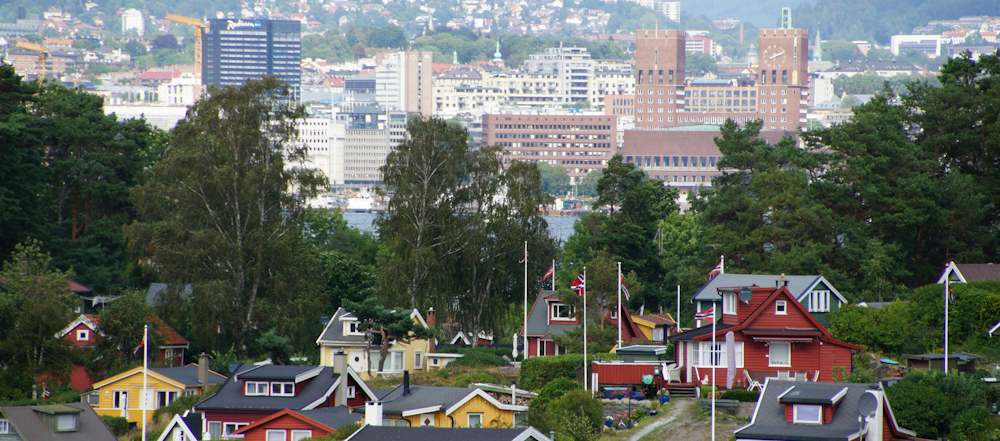
+ PRO: Family first
Working in Norway means that the family takes the front seat. Nobody bats an eye when you duck out early to fetch the kids from football practice. The parental leave would make most countries blush – new parents can choose between 49 weeks at full pay or a whopping 61 weeks at 80 percent. Both options now offer identical total payouts. The system sets aside specific time for mums and dads alike, encouraging hands-on parenting from both.
+ PRO: Short working hours
Norwegians work 7.5 hours per day and generally no more. You are not expected to answer emails or work in the evenings or on weekends.
+ PRO: Holidays
If on a local working contract, you’ll enjoy five weeks of leave per year, in addition to the national holidays throughout the year. These generous holiday allowances are part of Norway’s strong emphasis on work-life balance, which consistently ranks among the best in Europe.
+ PRO: Big company perks
A lot of large companies offer many perks to their employees, including company cabins, discounted fees to athletic clubs and golf courses and subsidised cafeterias at the workplace.
- CON: Working pace
Adjusting to the slower Norwegian pace of work can be a bit of a challenge for expats coming from a culture with an emphasis on work.
Local culture in Norway
+ PRO: Little culture shock
The Norwegian culture is relatively easy to integrate into, and the fact that many Norwegians speak excellent English makes it even easier. In fact, you can often work in Norway speaking only English, especially in larger cities and international companies.
- CON: Locals can be misunderstood
Some complain that they find the Norwegian people a little cold and perhaps even unfriendly, but it just takes a bit of time for them to warm up to new people. Norwegians are known for their reserved nature and adherence to social norms, which can initially seem distant to newcomers from more outgoing cultures.
+ PRO: Strong values of equality and fairness
Norway puts fairness and human rights front and centre. The country walks the talk on diversity and inclusion, making it easier for expats to fit in once they crack the cultural code.
Cost of living in Norway
- CON: Life in Norway is expensive
The cost of living in Norway stings. Almost everything comes with an eye-watering price tag. Norway runs about 27 percent pricier than neighbouring Sweden, which is why locals still flock across the border for shopping hauls. Food costs drive most of this border-hopping, especially for meat and dairy.
Healthcare in Norway
+ PRO: Exceptional healthcare for all
Norwegian healthcare stands out for its high quality. Your general doctor visits are covered under the national system, although dentists still cost extra. Norwegians live long, healthy lives thanks to top-notch medical care and smart public health policies. Children under 18 get free dental care, while adults pay privately.
- CON: Bureaucracy and waiting times in the healthcare system
The Norwegian healthcare system is run by the book. You’ll need a referral from your family doctor to see any specialist, and the wait can drag on. Many locals either go private or head abroad when they require non-critical treatment quickly.
Healthcare and Medical Insurance in Norway
Education and schools in Norway
+ PRO: Free post-secondary education for EU/EEA students
Norway offers all EU/EEA and Swiss students free college and university education. As of 2023, non-EU/EEA international students must pay tuition fees, although these remain significantly lower than in countries like the UK, the USA, or Canada. Students typically only take loans for living expenses and boarding costs.
+ PRO: Quality public education
Norway places great importance on education, and the public system reflects this, with exceptional student results and an emphasis on inclusion in the public education system.
Keeping in Touch in Norway
You should have no trouble keeping in touch with family and friends back home after you arrive in Norway. The internet is fast and dependable, and there are several mobile phone options, while English media is also plentiful.
Internet in Norway
The internet in Norway ranks among the world’s best, with top-notch reliability and speed. You can get online just about everywhere, and many hotels, cafés and restaurants in the cities have WiFi for their customers. Internet connectivity reaches even the most rural areas in Norway.
Norway offers high fixed broadband speeds, and mobile 5G networks deliver even faster service. The country was ranked 14th globally for mobile speeds in 2025, with 5G coverage reaching 99 percent of the population.
Nearly 97 percent of households have access to at least 100 Mbps internet, with the government aiming for universal coverage by the end of 2025. The biggest telecom provider is the state-owned Telenor, which leads the market in speed. Other major providers include Telia and Ice.
Most Norwegians have broadband internet at home, so internet cafés are rare. If you need to use the internet but don’t own a laptop, your local library offers free access.
Useful links
Mobile phones in Norway
Mobile phones in Norway are practically universally owned, and texting is a common form of communication. Landlines are becoming scarce in private homes, but are still used by most businesses. The main provider is Telenor, which owns the core infrastructure.
For a long-term stay in Norway, you’ll need a Norwegian identity number to apply for a phone contract. You will have an identification number assigned once your residency permit is approved.
For short-term stays, grab a kontantkort (pay-as-you-go SIM card), which doesn’t require a Norwegian identification number. When you arrive, you can check if your phone works in Norway. If so, buy a new SIM card with a Norwegian number from mobile phone shops, electronics shops like Elkjøp or Power, and some supermarkets and newsagents. Remember to bring your passport or ID when purchasing, as registration is mandatory.
Mycall offers SIM cards without requiring a D-number (temporary identification number), which helps new arrivals get connected quickly.
eSIM technology is now widely available through providers like Telenor, offering a digital alternative to physical SIM cards for compatible devices, including phones and smartwatches.
Useful links
Television in Norway
Television in Norway offers a window into the Norwegian psyche, culture, and language. Norway has four national television stations (NRK1, NRK2, NRK3 and NRK Super). Private companies such as TV2 and TVNorge, plus cable channels, let you watch your favourite shows from back home.
NRK is state owned and administrated by the Ministry of Culture and Church Affairs. The traditional TV licence fee in Norway has been replaced with an individual income-based tax, with the maximum individual contribution significantly lower than the previous household fee.
Many people subscribe to cable television services, with prices rising based on the number of channels in their package. You can also rent newly released movies through your cable provider.
Streaming services now dominate the Norwegian media scene, accounting for roughly 70 percent of all network traffic in the country.
Useful links
English media in Norway
English media in Norway is abundant and easily accessible. Television shows and movies are frequently broadcast in English, numerous websites offer English versions, and local libraries maintain English book sections.
While Norwegian channels naturally feature local content, many television channels air both Norwegian and American or British programming. All shows include subtitles regardless of the language, and most television channels in Norway broadcast in English.
International news channels such as BBC World, CNN, Sky News, and Al Jazeera are available through subscription services. Norwegian documentaries and series produced by NRK and other local companies have gained recognition on the international stage, with several winning awards at major festivals.
Postal services in Norway
Postal services in Norway offer a trusted way to ship packages to your family. The Norwegian postal service (Posten Norge) delivers consistently, with international packages typically arriving within five to 10 business days.
For international letters to neighbouring countries like Denmark, Posten Norge aims for delivery within five working days, although actual times may vary.
Posten Norge has transformed its service in recent years, now offering more than 2,600 collection points throughout the country. This includes self-service parcel lockers called pakkeboks that you can access through the Posten app on your phone. This setup gives you flexibility in how and when you collect packages, with most users picking up their items within 24 hours of delivery.